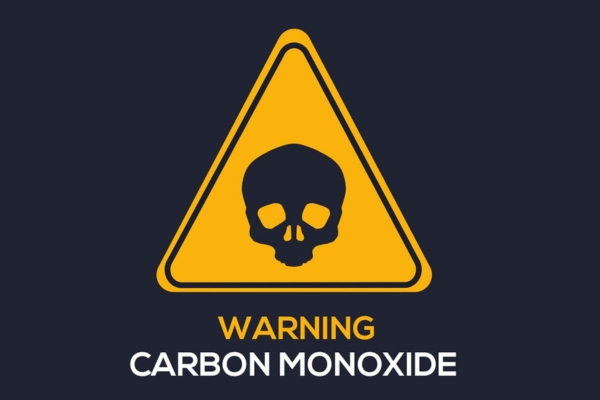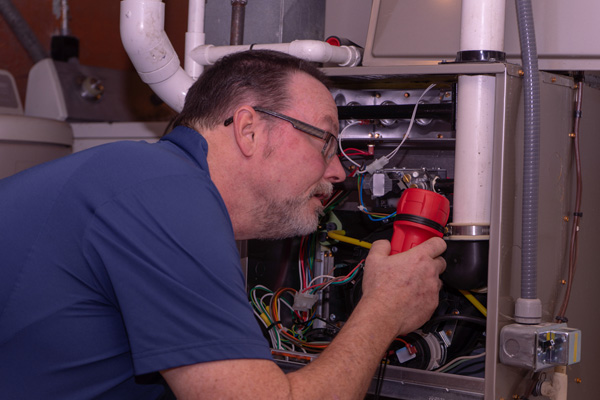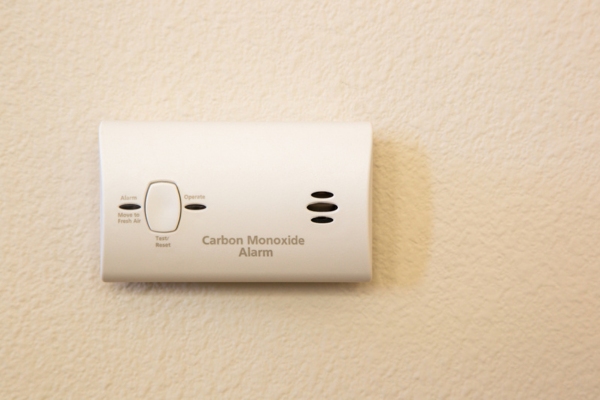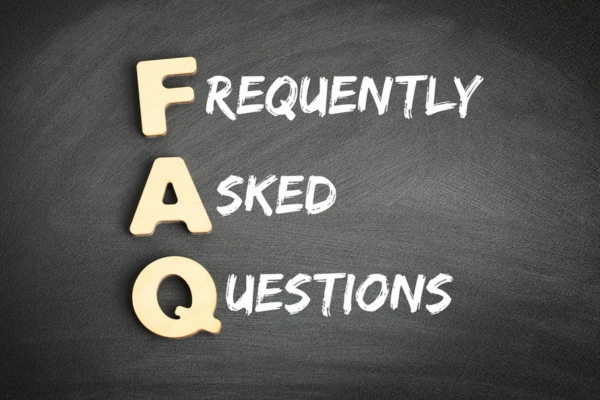Table of Contents
- What Is CO & When Is It A Threat?
- What’s The First Step In Carbon Monoxide Safety?
- Common Causes of Indoor Carbon Monoxide Accumulation
- Mild, Moderate, and Severe Symptoms of CO Exposure
- What To Do If You Suspect Carbon Monoxide Exposure
- Carbon Monoxide FAQs
- Conclusion
- Reach Out to County Line Fuel for All Your HVAC Needs
Ensuring your home remains safe and cozy through the winter is crucial. To achieve this, maintaining a fully functional heating system is vital. While these systems are designed to be durable, issues can still arise.
Your heating system relies on burning fuel to produce warmth. This process inevitably leads to the production of carbon monoxide (CO), a gas that poses serious risks if not monitored closely. Ensuring your carbon monoxide detector is operational when you use your heating appliances is crucial.
Carbon monoxide is a stealthy hazard—it’s both odorless and colorless, making it a danger to humans and pets alike. Exposure to this gas can be deadly over time. Fortunately, you can take several practical measures to safeguard your household from the dangers of this toxic gas. Keep reading this article from County Line Fuel to know more!
What Is CO & When Is It A Threat?

Carbon monoxide (CO) is also a byproduct of the heating process. Its lack of scent and invisibility make it undetectable by human senses alone. A carbon monoxide detector is essential if your home uses propane, natural gas, heating oil, charcoal, or wood.
Homes equipped with fuel-burning heaters and appliances typically incorporate a venting system. This system is crucial for preventing carbon monoxide (CO) poisoning by ensuring the gas is expelled outside, keeping indoor air safe for residents.
It’s essential that all heating systems and fuel-using appliances are correctly installed, vented, and regularly maintained. When these systems are in optimal shape, the likelihood of a CO leak is significantly reduced. However, in the event of a malfunction, a functioning CO detector plays a critical role in early detection, allowing homeowners to respond swiftly to mitigate risks.
Stay Warm and Cozy This Winter! Contact County Line Fuel now to book your heating service appointment and ensure your home remains comfortable and warm.
What’s The First Step In Carbon Monoxide Safety?
Initiating a carbon monoxide-safe home begins with installing a high-quality CO detector and alarm. This device, often battery-operated, must be positioned close to any appliance emitting carbon monoxide.
Regular testing and battery replacements are crucial for maintaining its effectiveness. Ideally, the batteries should be changed, and a test should be conducted before the onset of the colder months. Carefully read and adhere to the manufacturer’s manual during your carbon monoxide detector installation to ensure correct setup and maintenance.
Common Causes of Indoor Carbon Monoxide Accumulation

A malfunction in your heating system’s ventilation can lead to a dangerous carbon monoxide (CO) buildup. Additionally, CO can escape from a damaged or deteriorating heating unit. Therefore, it’s vital to complement your CO alarms with annual check-ups and maintenance of your heating system.
Ideally, schedule your HVAC system’s annual tune-up before the beginning of the heating season. This proactive measure is crucial for protecting your family from carbon monoxide leaks. Obstructions in your flue or vent or a backdraft near your heating equipment significantly increase the risk of CO exposure.
To ensure safety and proper functioning, contact your reliable local HVAC service provider for a thorough inspection and necessary repairs before the colder months begin. This strategy helps prevent issues during peak heating season when you rely on your system the most.
Experience Expert Heating Care! Contact County Line Fuel to schedule your heating service appointment and enjoy safe, reliable, and efficient heating all season long.
Other Common Indicators of Carbon Monoxide Accumulation

Beyond the warnings from your CO detector, there are additional signs that can indicate the presence of carbon monoxide. CO is produced as a byproduct of fuel combustion, and the appearance of exhaust can vary with different fuel types.
For instance, oil-based heating systems might display visible smoke and soot as a sign of carbon monoxide leakage. An increase in soot production necessitates an immediate call to a trusted HVAC service provider. Conversely, gas heating systems often show a yellow or orange flame as a sign of improper combustion, sometimes with intermittent yellow or orange bursts. Both scenarios suggest potential combustion issues that require professional attention.
Don’t Wait for a Heating Problem! Contact County Line Fuel now to schedule a preventive heating service and ensure your system operates smoothly throughout the season.
Mild, Moderate, and Severe Symptoms of CO Exposure
Carbon monoxide is toxic to humans and animals, regardless of the amount. Higher concentrations and longer exposure times significantly increase the severity and range of symptoms experienced.
Mild symptoms of exposure often manifest as headaches, nausea, dizziness, and fatigue. Moderate symptoms escalate to severe headaches, confusion, disorientation, and significant drowsiness. In cases of severe carbon monoxide poisoning, humans and animals may suffer from fainting, heart failure, convulsions, and even death.
What To Do If You Suspect Carbon Monoxide Exposure
If you suspect carbon monoxide exposure due to symptoms in any family member, immediately turn off all fuel-burning appliances. Open all windows and doors to enable fresh air to circulate. Quickly evacuate your home and seek fresh air outside. Promptly seek medical attention by reporting any symptoms of carbon monoxide poisoning to a doctor. Always take action when your CO detector sounds an alert.
Do not dismiss your CO alarm as a false alarm. It’s always better to err on the side of caution.
Optimize Your Heating System! Contact County Line Fuel now to schedule your heating service appointment and boost your home’s energy efficiency and comfort.
Carbon Monoxide FAQs

Here are some frequently asked questions about carbon monoxide to help you stay informed and safe.
What Is Carbon Monoxide and What Makes It Hazardous?
Carbon monoxide (CO) is an invisible, scentless gas produced by fossil fuel combustion, such as gas, oil, wood, and coal. It poses significant health risks because it can lead to severe symptoms such as headaches, dizziness, nausea, and, in extreme cases, death, especially when inhaled in large quantities or over extended durations.
What Are the Ways to Detect Carbon Monoxide in Your Home?
Installing CO detectors throughout your home, particularly near sleeping areas, is crucial to effectively detect carbon monoxide. These devices will emit an alarm when they detect elevated levels of CO, providing an early warning of its presence.
What Are the Common Sources of Carbon Monoxide in a Home?
Typical sources of carbon monoxide in residential settings are gas furnaces, water heaters, stoves, fireplaces, and other fuel-burning appliances. Vehicles running in attached garages or generators or grills used indoors can also produce carbon monoxide.
Stay Warm and Safe! Call County Line Fuel today to schedule your heating system maintenance and prevent any surprises during the colder months.
What Actions Should I Take If My Carbon Monoxide Detector Alarms?
Should your carbon monoxide detector sound an alarm, evacuate your home at once and contact emergency services. Do not return inside until professionals have inspected the premises and confirmed it is safe. Make sure all family members are safe and refrain from using any fuel-burning appliances until they have been thoroughly inspected.
How Can I Avoid Carbon Monoxide Poisoning in My Home?
To avert carbon monoxide poisoning, it’s essential to ensure that all fuel-burning appliances are correctly installed and regularly maintained. Avoid using generators, grills, or other gas-powered devices indoors. Ensure that vents and chimneys are free from blockages, and always operate vehicles outside of enclosed garages. Regularly check your CO detectors and replace their batteries when necessary.
Conclusion
Carbon monoxide poisoning poses a significant risk, particularly in homes with fuel-burning appliances. The most effective defense against this silent danger is a well-maintained and fully operational CO alarm. Additionally, scheduling annual tune-ups for your heating system is a proactive measure to prevent carbon monoxide buildup.
Given that carbon monoxide is both odorless and colorless, a CO alarm is crucial for alerting you to its presence in your home. Nevertheless, the best preventative strategy is to have your heating system professionally inspected. Ensure you arrange for annual maintenance before the onset of winter to safeguard your home and family.
Reach Out to County Line Fuel for All Your HVAC Needs

County Line Fuel delivers exceptional heating and cooling services across Clinton, NJ, and the surrounding areas. Our professionally certified technicians are among the best in the field, offering expert HVAC tune-ups, repairs, installations, and replacements. You can be confident that your HVAC system will be serviced with precision and care with their extensive knowledge and experience.
We’re committed to providing the region’s most competitive pricing for heating and cooling services. Our maintenance services are crafted to maximize your comfort, improve energy efficiency, and help you save on heating and cooling expenses.
If you need HVAC repairs or a system replacement, we can recommend the most suitable options for your home within your budget. We stand behind our work with a satisfaction guarantee. Contact County Line Fuel today to schedule a service appointment or to get a free in-home estimate.
You can click here to contact us now or call us at (908) 735-7610 to find out more!
Related Articles:
